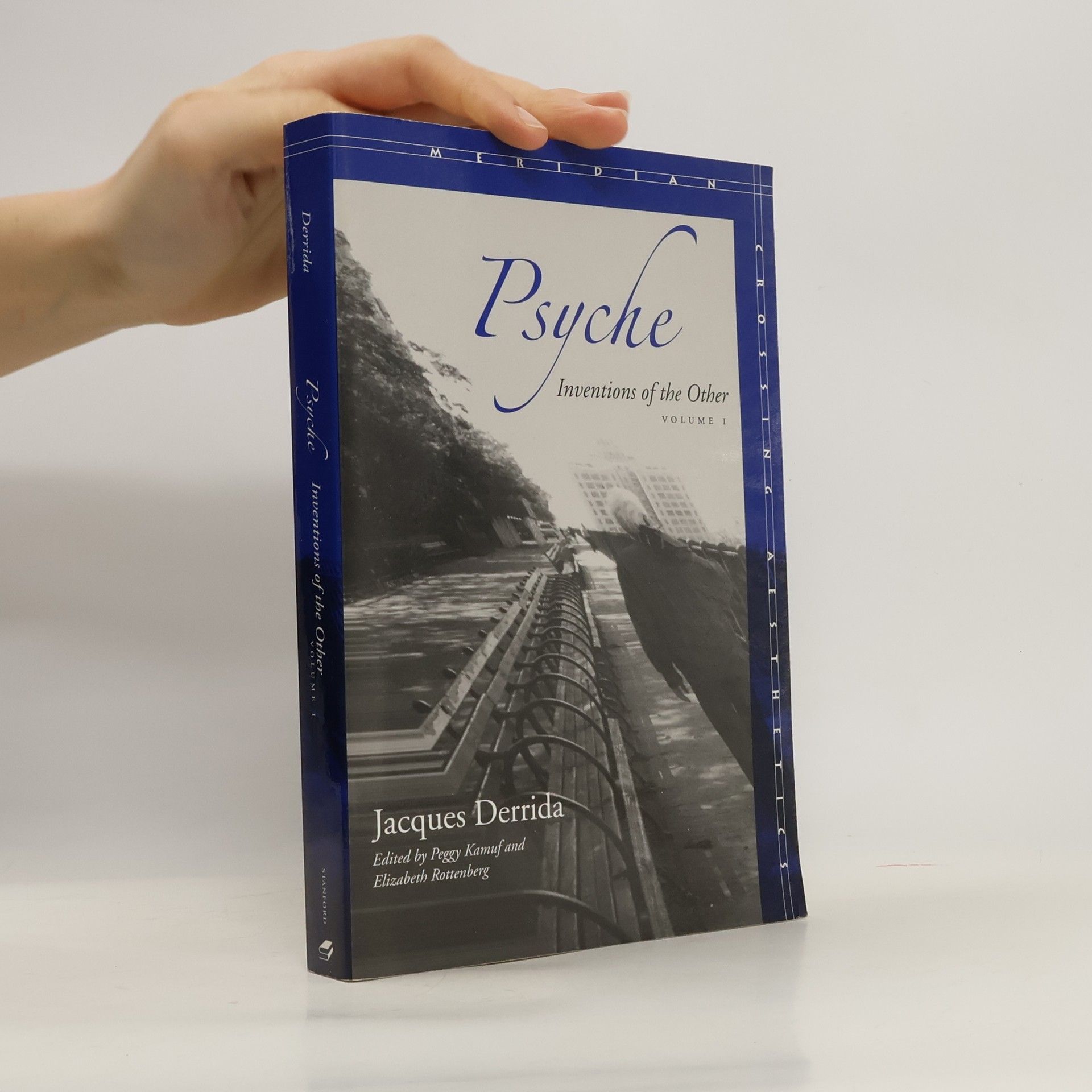Psyche
- 352 pages
- 13 hours of reading
Advances the author's reflections on many issues, such as sexual difference, architecture, negative theology, politics, war, nationalism, and religion.
Jacques Derrida, the originator of “deconstruction,” provided a critical lens for examining literary and philosophical texts, as well as political structures. While Derrida sometimes lamented the fate of the term “deconstruction,” its widespread adoption highlights the profound influence of his thought across philosophy, literary theory, art, and particularly architectural and political theory. Deconstruction endeavors to rethink the very nature of difference that separates self-reflection, but more crucially, it strives to prevent the worst forms of violence. This pursuit of justice is relentless, acknowledging that perfect justice may ultimately be unattainable.







Advances the author's reflections on many issues, such as sexual difference, architecture, negative theology, politics, war, nationalism, and religion.
Following on from The Beast and the Sovereign, Volume I, this book extends Jacques Derrida’s exploration of the connections between animality and sovereignty. In this second year of the seminar, originally presented in 2002–2003 as the last course he would give before his death, Derrida focuses on two markedly different texts: Heidegger’s 1929–1930 course The Fundamental Concepts of Metaphysics, and Daniel Defoe’s Robinson Crusoe. As he moves back and forth between the two works, Derrida pursuesthe relations between solitude, insularity, world, violence, boredom and death as they supposedly affect humans and animals in different ways. Hitherto unnoticed or underappreciated aspects of Robinson Crusoe are brought out in strikingly original readings of questions such as Crusoe’s belief in ghosts, his learning to pray, his parrot Poll, and his reinvention of the wheel. Crusoe’s terror of being buried alive or swallowed alive by beasts or cannibals gives rise to a rich and provocative reflection on death, burial, and cremation, in part provoked by a meditation on the death of Derrida’s friend Maurice Blanchot. Throughout, these readings are juxtaposed with interpretations of Heidegger's concepts of world and finitude to produce a distinctively Derridean account that will continue to surprise his readers.
Psyche: Inventions of the Other is the first publication in English of the twenty-eight essay collection Jacques Derrida published in two volumes in 1998 and 2003. In Volume I, Derrida advances his reflection on many topics: psychoanalysis, theater, translation, literature, representation, racism, and nuclear war, among others. The essays in this volume also carry on Derrida's engagement with a number of key thinkers and writers: Barthes, Benjamin, de Man, Flaubert, Freud, Heidegger, Lacoue-Labarthe, Levinas, and Ponge. Included in this volume are new or revised translations of seminal essays (for example, "Psyche: Invention of the Other," "The Retrait of Metaphor," "At This Very Moment in This Work Here I Am," "Tours de Babel" and "Racism's Last Word"), as well as three essays that appear here in English for the first time.
While much has been written against the death penalty, the author contends that Western philosophy is massively, if not always obviously, complicit with a logic in which a sovereign state has the right to take a life.
One of Jacques Derrida’s most provocative works, this text challenges and deconstructs the deeply rooted dichotomy of life and death in Western thought. Derrida reexamines the traditional philosophical understanding of their relationship through multidisciplinary analyses encompassing philosophy, linguistics, and life sciences. He engages with Freudian psychoanalysis, the philosophies of Nietzsche and Heidegger, and the works of geneticist François Jacob and epistemologist Georges Canguilhem to explore this complex relationship. Delivered over fourteen sessions between 1975 and 1976 at the École normale supérieure in Paris, the seminar was part of the preparation for students facing the agrégation, a highly competitive exam with the theme “Life and Death.” Derrida notably altered the title by omitting the coordinating conjunction, prompting a philosophical inquiry into the connection between life and death. He posits that death should not be viewed merely as the opposite of life or its ultimate truth, but as a factor that both limits and enables life. Through these engaging sessions, Derrida not only questions conventional understandings of life and death but also cultivates a novel perspective on what he terms “life death.”
Exploring the concept of hospitality, this collection features Jacques Derrida's lectures that delve into the complexities of welcoming the foreigner and the implications for kinship and state relations. Key themes include friendship, citizenship, migration, and xenophobia, alongside a critical distinction between conditional and unconditional hospitality. The second year of the seminar also addresses Islamic perspectives on hospitality, the significance of forgiveness, and the philosophical contributions of Emmanuel Levinas, enriching the discourse on responsibility in a global context.
The second volume of Jacques Derrida's exploration of the death penalty delves into Kant's justification of capital punishment, deconstructing his arguments and revealing significant contradictions. Derrida critiques the "anesthesial logic" surrounding the death penalty, intertwining themes of cruelty and pain through various philosophical texts. He argues that the rationality behind the death penalty reflects an illusory control over mortality. Set against the backdrop of a pivotal moment in U.S. history regarding capital punishment, this analysis aims to contribute meaningfully to ongoing debates.
This book, written out of Derrida's long-standing friendship with Jean-Luc Nancy, examines the central place accorded to the sense of touch in the Western philosophical tradition.
Exploring the intricate relationship between forgiveness and betrayal, this work presents Jacques Derrida's seminars that delve into the philosophical and ethical implications of responsibility. He examines various forms of deceit, such as perjury and infidelity, while arguing that forgiveness transcends traditional notions of repentance and punishment. By analyzing texts from influential thinkers and literary figures, Derrida reveals how forgiveness disrupts established categories of knowledge and challenges our understanding of presence and identity.